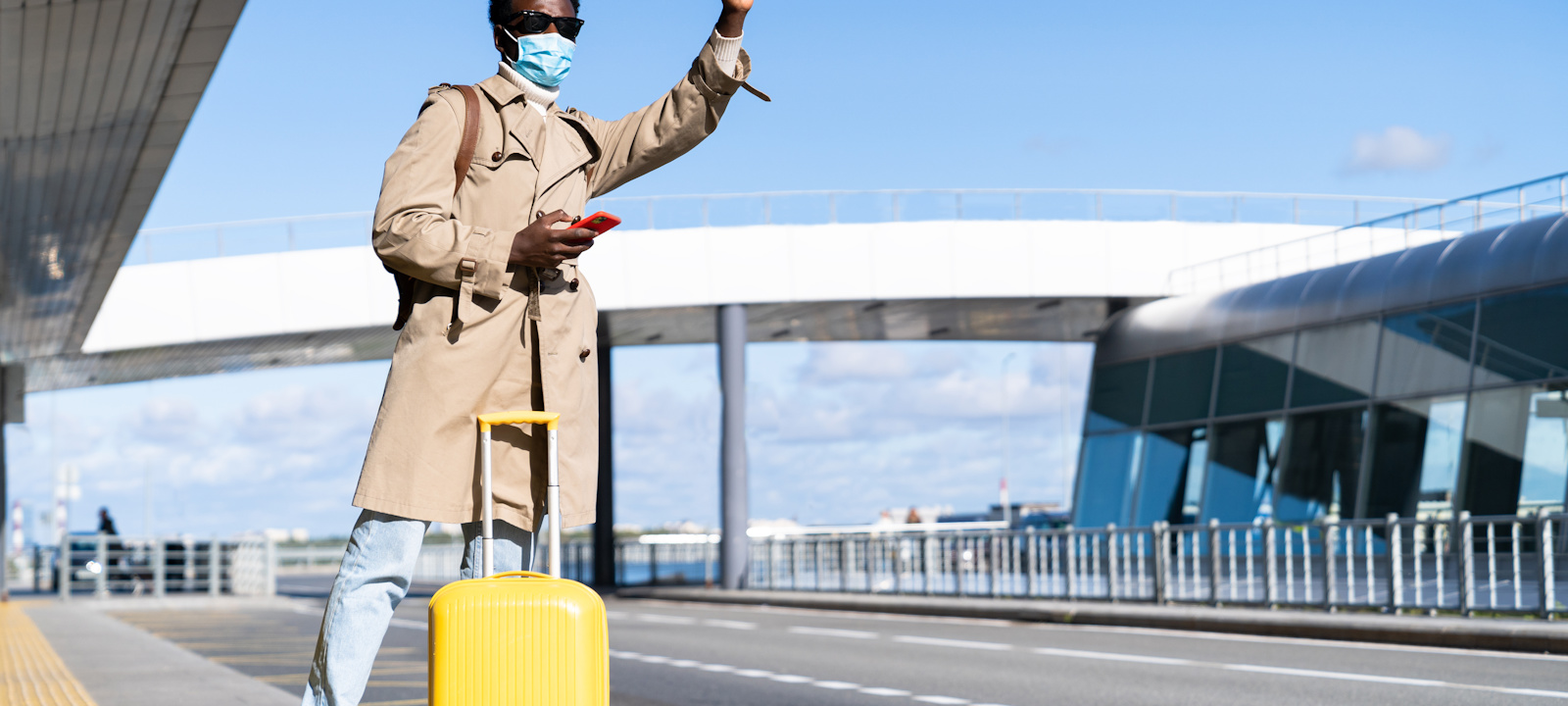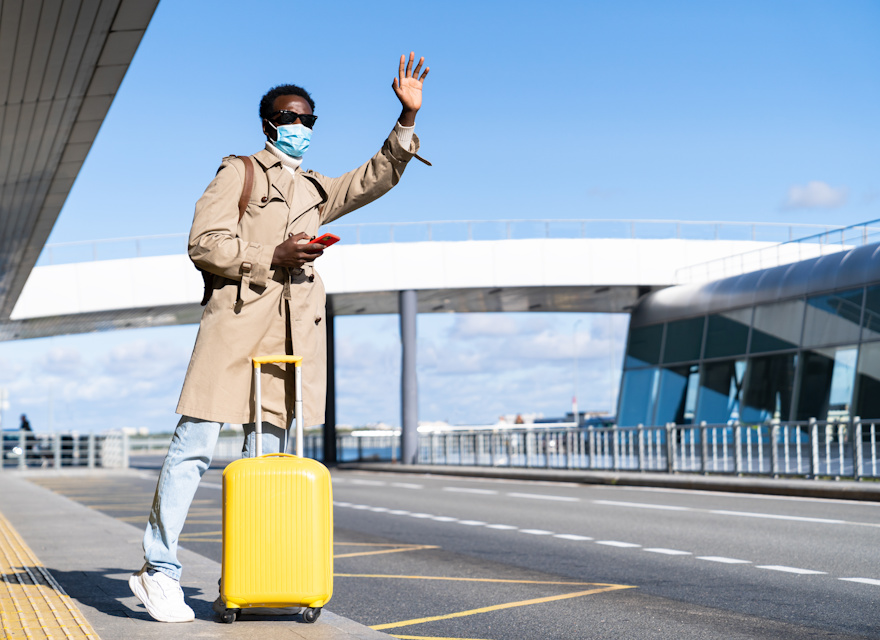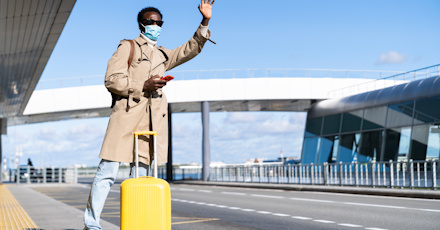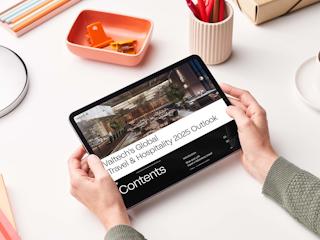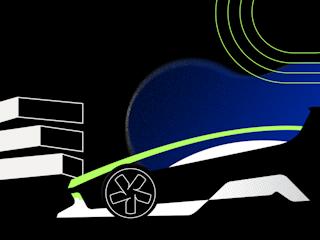Eric Hemker has more than 15 years experience working with airline and travel industry clients. As an engagement manager and one of our industry SMEs, Eric has been working on ways to implement, maintain and enhance passenger processing and engineering solutions for some of the world’s largest airlines for more than a decade.
During his career he has observed the many evolutions of the travel industry in response to changing human behaviours, economic divergence and natural disasters. No stranger to huge disruption in the industry, he was working with airline clients during the tragic events of 9/11 and worked to develop solutions to ensure similar situations couldn’t, and wouldn’t, happen again.
Being at the forefront of digital innovation in the industry, Eric has worked with clients to improve the passenger experience, oversee the technical evolution towards opensource technologies and to make recommendations on the opportunities that can come out of a crisis of this scale.
Eric, when was the last time we saw disruption on this scale in the industry, and what was the response at that time?
I was working in passenger processing and automation during the 9/11 crisis and throughout the aftermath. Really the impact has been just as big, if not even more so with Covid. The difference is in the fluidity of this situation. In 2001 there was a ‘known’ element to the threat; when 9/11 happened and we knew what we could do to implement changes across the industry to stop it from happening again.
With the current crisis there are so many unknowns and the impact is absolutely global in it’s nature. Never before have we seen so many planes grounded for so long across the world and that comes with its own challenges from a maintenance perspective. Generally when there is an event that impacts the industry it tends to be a mostly regional response, eg the volcano over Iceland in 2010, SARS in 2002 or even the Iranian jet disaster earlier this year. Covid has impacted every single aspect of the world, and as it stands, we just don’t know what the future is going to look like or what’s going to be an acceptable state for businesses or employees going forward.
Having said that, there seems to be both fear and optimism in equal measure across the industry. You can see the Chinese domestic market expanding again from a travel perspective, and even in Europe it’s starting to pick up in some areas. But there are other countries who are still considering maintaining no travel (domestic or international), for the foreseeable future and that’s a huge concern for the businesses and industries that rely on the travel and tourism economy.
Have you seen any encouraging examples of companies navigating the negative impact of the crisis?
Absolutely. We exist in the digital space which means I've been most interested in how brands are using digital means to evolve and adapt. This can be as simple as shifting marketing strategies to promote future travel opportunities (in 12 - 24 months time) or appealing to local audiences with staycations and domestic options.
I’ve also seen interesting examples from a commerce and booking standpoint that are enabling companies to adjust their offering as quickly as possible. I’ve seen low cost ticket incentives to tackle the challenge of low seat occupancy but I've also seen examples of ticket price increases as clients try to mitigate the impact of those same occupancy concerns. There are lots of different approaches as everyone tries to make sense of the situation.
Do you think there are opportunities for clients within the industry to mitigate the impact?
From a digital standpoint there are options that companies - whether you are an airline or a travel company, a hotel chain or a ferry company - can consider to alleviate some of the pressure, to minimise the impact and ensure customer safety.
For much of the industry it will be a case of reimagining the whole ‘booking to boarding’ experience. Companies will need to consider touchless interfaces and make decisions that support the requirements for social distancing and customer safety.
For online booking and query management processes it may be worth considering chatbots which can be a relatively simple addition that help to deal with sudden influxes in customer queries (many of which will be similar in nature) and therefore ideally suited to the chatbot model. I’ve heard firms suggesting customers allow ‘additional time’ if they are contacting the call centres - chatbots can certainly alleviate some of that load on the front line call services and allow you to redirect staff into other aspects of the business.
For airports and airlines, as well as other travel hubs like stations and hotels, businesses need to consider alternatives to the physical ticketing and boarding processes. There are already a number of solutions for contactless payment and online / mobile ticket options and we are seeing an increase in the usage of electronic bag tags that are either in-built or attach to the luggage handles making the baggage process a no-touch / simple scan scenario.
Whilst queueing at check in desks / boarding gates is already relatively low-touch, it’s certainly not a socially distant situation. Valtech Attend could be a solution in those instances where a digital queuing system regulates the flow of people from one location to another. You can learn more about how that works here.
We are already seeing the expansion of delivery of goods and services within airport settings as well as innovations like click and collect and pre-booking options through apps and websites.
The last few years has actually seen a huge focus on improving the customer experience within this industry, the Covid crisis is simply framing many of these ideas and concepts in a new context.
With innovation in mind, are you seeing opportunities for the cross pollination of innovations from other industries to solve these challenges?
For any company, no matter what sector, the process of innovation is what enables you to respond quickly to disruption. That can be disruption from challenger companies like we are seeing so readily in the financial and commerce sectors, to disruption from changing customer behaviours or trends, like we are seeing so avidly in the retail and mobility sectors. A ‘start small, test, learn and iterate’ approach means you can see what will and won’t work without risking huge expense.
For many companies it may be a case of revisiting the innovation back-logs that have perhaps taken a back seat over the last couple of years. Perhaps there are ideas in there that have new potential in this situation. Valtech Attend is a key example of that - initially developed to solve the issue of long queues in retail stores (enabling the shopper to keep browsing and instead let the attendant locate them wherever they were), it now has a whole new lease of life in the context of social distancing. Suddenly we can apply that same technology to hospitals, supermarkets or, in this case airports or stations.
As an agency we are at an advantage in the sense that we work across multiple sectors as that gives us the ability to take our insights from one industry and apply them intelligently to another. In times like this where you need to take a holistic view of an uncertain situation, being able to apply the experience of not only our travel industry experts, but also to draw on the knowledge and experience of colleagues from across the digital spectrum is invaluable. Not just for us, but for our clients too.
